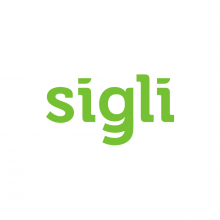
There are 77 Companies in the Netherlands
that provide NodeJS Development Services!
One of the most wired countries in the world, the Netherlands is Europe’s hotspot for leading information and communications technology companies. Holland’s state-of-the-art, 100% digital, advanced fiber-optic network and competitive business climate support a strong community of startups and global IT companies. In fact, 60% of Forbes 2000 companies in the IT industry have already established operations in Holland.
Discover Top IT Companies in the Netherlands specialized in NodeJS and other related services. Find the best IT service providers for your projects.
Node Js is a JavaScript runtime environment that allows developers to run JavaScript code on the server-side. Unlike traditional server-side technologies like PHP or Ruby, which are typically used for handling server tasks, Node.js enables developers to use JavaScript for both client-side and server-side development.
Handpicked companies • No obligation to hire • 100% risk-free
Featured Companies in Netherlands
This month, the following NodeJS Development companies managed to provide an outstanding service and support. It's worth taking a look.

Amsterdam, Netherlands Head office in: Poland
Build your next big thing with flawless technology, design, and execution. Software Engineering & Consulting Company

Amsterdam, Netherlands Head office in: United States
Access the Top 1% Tech Talent | 1500+ In-House Developers | Trusted by Fortune 500 Companies
Explore Top NodeJS Development Companies in Netherlands

Digital Present | Digital Studio Verified Company
Eindhoven, Netherlands Head office in: Macedonia
Award-winning studio specialized in web development, UI/UX design, strategy, and support.
Services:

Lizard Global Verified Company
Rotterdam, Netherlands Head office in: Malaysia
Your no. 1 Full Stack Digital Partner in Mobile App and Web App development; Imagine | Design | Create | Grow. New website at www.lizard.global

Creative Navy Verified Company
Amesterdam, Netherlands Head office in: United Kingdom
UX design studio that builds precise, intuitive interfaces for complex systems—where usability meets high-stakes innovation.
Services:

Hilversum, Netherlands Head office in: United States
Your Tech Partner for Business Growth

DeSmart Software Development Verified Company
Amsterdam, Netherlands Head office in: Poland
Human-first software development. We build apps people actually enjoy. We specialize in logistics, warehouse and e-commerce software development.

Galerij, Netherlands Head office in: India
Leading Software and Mobile App Development Company

Mobirevo - Web, Mobile App & Software Development Company Verified Company
Amsterdam, Netherlands Head office in: Nigeria
Mobirevo is a Leading custom software development agency focused on web, mobile app development & saas application development.

Amesterdam, Netherlands Head office in: United States
WiserBrand is the go-to if you need to custom-build any eCommerce website, create effective marketing strategies and memorable brand experiences.

Eindhoven, Netherlands Head office in: United States
LeverX is an international company and a global system integrator that specializes in SAP implementation and customization.
Services:
Outstanding Digital Solutions that Multiply Results
Services:

Capital Numbers Infotech Verified Company
Amesterdam, Netherlands Head office in: India
Hire In-Demand Skills, On-Demand

Amsterdam, Netherlands Head office in: Poland
mobile | web | AI | Flutter | Google Certified Agency

Hoofddorp, Netherlands Head office in: United Kingdom
Most Trusted & Award Winning IT Firm 🏆

iDigitalise - Digital Marketing Agency Verified Company
Amsterdam, Netherlands Head office in: United States
Digital Marketing and Technology Firm
SECL Group drives digital transformation with AI-powered software solutions for enterprises and growing startups

First Line Software Verified Company
Hague, Netherlands Head office in: United States
We Make You AI-First
AppVin | Software Development Company Netherlands, UAE, USA

MindInventory Verified Company
The Hague, Netherlands Head office in: India
AI-led Software Development Company
Services:

Hague, Netherlands Head office in: Poland
Global IT Consulting Company and AI Development Partner. Powered by Python. Driving Innovation Since 2005.
Studio Ubique, a remote-first Dutch web design agency, crafts high-converting websites with strategy, UX expertise, and custom code.
Services:

Amsterdam, Netherlands Head office in: Germany
From ideation to scaling, we build new software products that drive growth.
Filter NodeJS Development Companies in Netherlands by Cities
Find the right tech company near you or from a specific city. Some of the best companies might be located in smaller cities.
Find more NodeJS Development companies around the world
TechBehemoths is the world's most advanced and user-friendly platform to match IT Companies with real clients without hustle.
The ICT in the Netherlands: Genuine Data & Profile
The IT industry in the Netherlands is vibrant and thriving. The country has established itself as a major hub for technology and innovation, attracting both domestic and international companies. The IT sector in the Netherlands is characterized by a strong emphasis on cutting-edge technologies, digital transformation, and a progressive business environment.
Dutch state-of-the-art, 100% digital, advanced fiber-optic network, and competitive business climate support a strong community of startups and global IT companies. In fact, 60% of Forbes 2000 companies in the IT industry have already established operations in the Netherlands.
The IT industry in the Netherlands has been steadily growing in the past few years. The IT Services market in the country is predicted to reach a revenue $28.71 billion in 2025 with a CAGR 2025-2030 of 2.44%.
Why Work With IT Companies From the Netherlands
The IT sector of the Netherlands is characterized as an Innovative SME-driven software solution provider that responds to global trends with cutting-edge software solutions in climate change, aging, digitization, and increasing productivity and efficiency in businesses.
In addition, a large number of sub-segments have been emerging in the sector. Developments in the field of Business Intelligence, Security, Social Collaboration, mobile and cloud applications, Software in the cloud as a Service (Saas), etc, have been growing at much higher rates.
But this is not everything. Here are some more reasons why you should work with NL IT companies and digital agencies, according to the Future Forward Senior Mobile Marketing Manager -Nebosja Gutesa:
- Access to local expertise: A local IT firm will be more familiar with the local market, culture, and business practices.
- Better communication: Because there are no language or time zone barriers to overcome, working with a local IT company can make communication easier and more efficient.
- High-quality services: The Netherlands is known as a center of innovation and technology. Local IT firms are frequently at the forefront of these advancements, providing clients with cutting-edge solutions and services.
- Compliance with local regulations: The Netherlands has stringent data privacy and security regulations. You can ensure that your IT solutions are compliant with these regulations by working with a local IT company.
- Working with a local IT company is an excellent way to support the local economy and promote sustainability.
What to Be Aware of When Working With Dutch IT Companies
Being a part of one of the most developed IT ecosystems in the world comes with several challenges on both sides, for IT companies and for clients. It is well-known that Dutch IT companies are among the most expensive in the IT market, having the second-highest hourly rate in the European web industry, with an average between 25EUR and 70EUR.
Since most of the IT companies from neighboring countries provide the same range of services for a lower price and probably at the same quality, Dutch IT companies are many times considered an alternative rather than a priority for most of the clients.
How Reliable Are the Dutch IT Companies
In terms of reliability, Dutch companies in the IT sector have a good reputation, especially in project management and service delivery, mainly due to their wide experience and longstanding innovative spirit.
Moreover, the Netherlands is appealing to international IT firms due to its advanced IT infrastructure, favorable business climate, and strategic location in Europe. The country has a competitive tax system, cutting-edge digital infrastructure, and a diverse workforce. Besides that, the Dutch government actively promotes innovation and entrepreneurship through a variety of policies and initiatives, including funding opportunities and favorable regulations, states Nebojsa Gutesa from Future Forward
However, the regional competition is tough, and Germany, the UK, and France are in leading positions on market share and in terms of choice for potential foreign clients and investors, including multinational IT corporations.
How Does the Dutch IT Industry Relate to the Neighboring Countries?
In comparison to its neighboring countries, the Netherlands has a well-established and thriving IT industry. The country has a strong digital infrastructure as well as a talented workforce that is fluent in English.
In comparison to its neighbors, the Netherlands is known for its forward-thinking and innovative approach to technology. Several world-class universities and research institutions are located in the country, attracting top talent from across Europe and beyond.
Finally, the Netherlands has a favorable business climate and a well-established legal system, resulting in a stable environment for business operations.
The Business Environment in the Netherlands
According to Matias Rodsevich from PRLab, a leading PR Company from the Netherlands, the business environment is favorable. The country has a highly diversified economy, is open to global trade, and has a highly skilled workforce. The Netherlands has access to major markets with its central location in Europe. In addition, it is a member of the EU, which offers additional trade and investment opportunities.
In addition, Musa Toktas from Heraklet LLC, a company established in Turkey, with an office in the Netherlands, states that the country also has a favorable tax regime and is home to many international companies, making it an attractive location for foreign investment.
The Ease of Opening An IT Company in the Netherlands
As Nebosja from Future Forward states, the business climate in the Netherlands is favorable for establishing a new IT company as a local entrepreneur. The country has a well-developed IT infrastructure and policies that encourage entrepreneurship. Furthermore, the Netherlands has a diverse and skilled workforce, making it an appealing destination for IT firms. In terms of regulations, registering a new business in the Netherlands is a relatively simple and efficient process.
For foreign entrepreneurs, the Netherlands has two options: for EU, EEA, and Swiss citizens, who are all allowed to open a business in the country under the EU law. And the second option available for other foreigners is getting a startup visa for entrepreneurs
Amsterdam and Eindhoven - Among the Best Places in the Netherlands for IT Businesses And Professionals
Nebosja also considers that the Dutch capital, and also Eindhoven, are the best cities to offer a comfortable business climate for IT businesses. He states the following:
Two of the best cities for IT are Amsterdam and Eindhoven. But don't forget Rotterdam and Brielle as well.
- Amsterdam is the largest city in the Netherlands and a global hub for business and technology. The city has a highly educated workforce and a strong international orientation, making it an appealing location for IT firms seeking to expand globally. Furthermore, Amsterdam has a highly developed IT infrastructure, including a high-speed fiber network, allowing businesses to easily connect with their customers and partners.
- Eindhoven, on the other hand, is known for its strong technology and design industries. It has a highly educated workforce focused on engineering and technology. The city also has a high quality of life and is regarded as one of Europe's most innovative.
This article was created together with prominent figures and professionals coming from reputable Dutch IT companies. Special credits: Musa Toktas, Matias Rodsevic, Nebojsa Gutesa.
What is NodeJS and what are its benefits for your projects?
Node Js is a JavaScript runtime environment that allows developers to run JavaScript code on the server-side. Unlike traditional server-side technologies like PHP or Ruby, which are typically used for handling server tasks, Node.js enables developers to use JavaScript for both client-side and server-side development. Below we’ll dive deeper into the types of projects built with it, and how companies can leverage it for their projects:
Node.js is built on the V8 JavaScript engine from Google, making it incredibly fast and efficient. It uses an event-driven, non-blocking I/O model, which makes it ideal for building scalable and real-time applications. Node.js is particularly well-suited for projects that require high concurrency, such as web applications, APIs, chat applications, streaming services, and more. It has a large and active community, which has led to a rich ecosystem of libraries and packages available via npm (Node Package Manager), simplifying development tasks.
As for the type of projects that can be built using Node.js, we can name the following:
- Web Applications: Many web applications are built using Node.js, often using web frameworks like Express.js. These applications can range from small personal websites to large-scale, enterprise-level platforms.
- APIs (Application Programming Interfaces): Node.js is commonly used to create RESTful APIs that allow different services or applications to communicate with each other. This is essential for building services that provide data to mobile apps, websites, and other clients.
- Real-time Applications: Node.js is favored for real-time applications, such as chat applications, online gaming, and collaborative tools. The event-driven architecture of Node.js is well-suited for handling multiple concurrent connections.
- Streaming Services: Media streaming platforms and services that deliver audio and video content use Node.js to efficiently manage and serve media files to users.
- IoT (Internet of Things): Node.js is used in IoT projects to handle data collection from sensors and devices, process that data, and communicate with cloud services.
- Serverless Functions: Node.js is a popular choice for building serverless functions or AWS Lambda functions due to its lightweight and quick startup times.
Node.js is a versatile technology that can be effectively utilized in both smaller and larger projects, but its suitability hinges on several key factors.
For smaller projects, Node.js offers distinct advantages. Its event-driven, non-blocking I/O model allows developers to rapidly prototype and develop applications. This makes it an excellent choice for creating functional prototypes, minimum viable products (MVPs), or simple web tools swiftly.
Node.js's efficiency in handling I/O operations can lead to responsive user experiences, which is valuable for small-scale applications like personal websites, blogs, or straightforward web tools. Moreover, Node.js itself is lightweight, making it suitable for projects with minimal hardware or resource requirements. It doesn't impose significant overhead, making it a cost-effective option.
Node.js is also well-suited for serving as a backend for Single-Page Applications (SPAs), handling API requests, and serving static files efficiently. Its ability to use JavaScript both on the server and client sides can reduce development costs by enabling code reuse and a single development skill set.
For larger projects, Node.js remains a compelling choice for various reasons. Its ability to handle a large number of concurrent connections positions it favorably for projects with high traffic and user loads. It's designed to scale efficiently, allowing it to distribute workloads across multiple servers or containers, making it scalable and robust.
In larger applications with complex functionality, Node.js can be employed to build microservices that communicate efficiently with each other. This modular approach enhances maintainability and facilitates development on a larger scale.
Node.js's event-driven nature also makes it an ideal candidate for larger projects requiring real-time features. It excels in managing multiple simultaneous connections, making it suitable for applications such as messaging platforms, online gaming, or collaborative tools.
Additionally, Node.js continues to offer development speed advantages regardless of project size, which can be particularly valuable in meeting tight project deadlines.
Furthermore, for larger projects with JavaScript as the primary language on both the frontend and backend, Node.js facilitates streamlined development processes, code sharing, and collaboration among teams working on different parts of the application.




